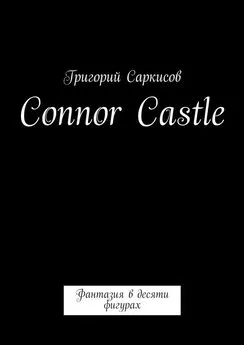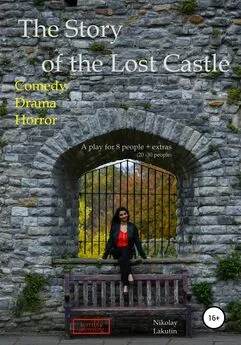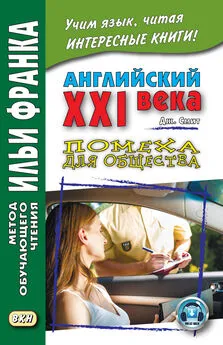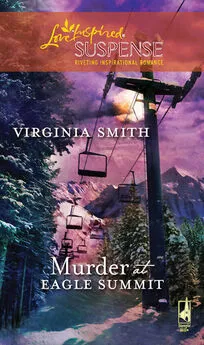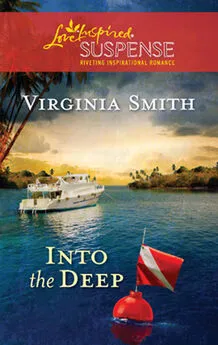Dodie Smith - I Capture the Castle
- Название:I Capture the Castle
- Автор:
- Жанр:
- Издательство:неизвестно
- Год:неизвестен
- ISBN:нет данных
- Рейтинг:
- Избранное:Добавить в избранное
-
Отзывы:
-
Ваша оценка:
Dodie Smith - I Capture the Castle краткое содержание
I Capture the Castle - читать онлайн бесплатно полную версию (весь текст целиком)
Интервал:
Закладка:
These were often built in quadrangle form with jutting towers at the
gatehouse, the corners and in the middle of each side so that the
defenders could see any besiegers who were trying to mine or scale the walls, and fight them off. But the besiegers had plenty of other good tricks, notably a weapon called a trebuchet which could sling great
rocks- or a dead horse--over your curtain walls, causing much
embarrassment.
Eventually, someone thought of putting moats round curtain walls. Of
course, the moated castles had to be on level ground; Belmotte
tower-keep, up on its mound, must have been very much of a back number when Godsend Castle was built. And then all castles gradually became
back numbers and Cromwell's Roundheads battered two-and-a-half sides of our curtain walls down.
Long before that, the de Godys name had died out and the two castles
had passed to the Cottons of Scoatney, through a daughter. The house
built on the ruins was their dower house for a time, then it became
just a farm-house. And now it isn't even that; merely the home of the ruined Mortmains.
Oh, what are we to do for money his Surely there is enough intelligence among us to earn some, or marry some-Rose, that is; for I would
approach matrimony as cheerfully as I would the tomb and I cannot feel that I should give satisfaction. But how is Rose to meet anyone his We used to go to London every year to stay with Father's aunt, who has a house in Chelsea with a lily-pool and collects artists. Father met
Topaz there--Aunt Millicent never forgave him marrying her, so now we don't get asked any more;
this is bitter because it means we meet no men at all, not even
artists. Oh, me! I am feeling low in spirits. While I have been
writing I have lived in the past, the light of it has been all around me-first the golden light of autumn, then the silver light of spring
and then the strange light, gray but exciting, in which I see the
historic past. But now I have come back to earth and rain is beating
on the attic window, an icy draught is blowing up the staircase and
About has gone downstairs and left my stomach cold.
Heavens, how it is coming down! The rain is like a diagonal veil
across Belmotte. Rain or shine, Belmotte always looks lovely. I wish
it were Midsummer Eve and I were lighting my votive fire on the
mound.
There is a bubbling noise in the cistern which means that Stephen is
pumping. Oh, joyous thought, tonight is my bath night! And if Stephen is in, it must be tea-time. I shall go down and be very kind to
everyone.
Noble deeds and hot baths are the best cures for depression.
IV
Little did I think what the evening was to bring-something has actually happened to us! My imagination longs to dash ahead and plan
developments; but I have noticed that when things happen in one's
imaginings, they never happen in one's life, so I am curbing myself.
Instead of indulging in riotous hopes I shall describe the evening from the beginning, quietly gloating- for now every moment seems exciting
because of what came later.
I have sought refuge in our barn. As a result of what happened last
night, Rose and Topaz are spring-cleaning the drawing-room. They are
being wonderfully blithe--when I dwindled away from them Rose was
singing "The Isle of Capri" very high and Topaz was singing "Blow the Man Down" very low. The morning is blithe too, warmer, with the sun shining, though the countryside is still half-drowned. The barn--we
rent it to Mr. Stebbins but we owe him so much for milk and butter
that he no longer pays--is piled high with loose chaff and I have
climbed up on it and opened the square door near the roof so that I can see out. I look across stubble and ploughed fields and drenched winter wheat to the village, where the smoke from the chimneys is going
straight up in the still air. Everything is pale gold and washed
clean, and hopeful.
When I came down from the attic yesterday, I found that Rose and Topaz had dyed everything they could lay hands on, including the dishcloth
and the roller towel.
Once I had dipped my handkerchief into the big tin bath of green dye, I got fascinated too-it really makes one feel rather Godlike to turn
things a different color. I did both my nightgowns and then we all did Topaz's sheets which was such an undertaking that it exhausted our
lust. Father came down for tea and was not too pleased that Topaz had dyed his yellow cardigan--it is now the color of very old moss. And he thought our arms being green up to the elbows was revolting.
We had real butter for tea because Mr. Stebbins gave Stephen some when he went over to fix about working (he started at the farm this
morning); and Mrs.
Stebbins had sent a comb of honey. Stephen put them down in my place
so I felt like a hostess. I shouldn't think even millionaires could
eat anything nicer than new bread and real butter and honey for tea.
I have rarely heard such rain as there was during the meal. I am never happy when the elements go to extremes; I don't think I am frightened, but I imagine the poor countryside being battered until I end by
feeling battered myself. Rose is just the opposite--it is as if she is egging the weather on, wanting louder claps of thunder and positively encouraging forked lightning. She went to the door while it was
raining and reported that the garden was completely flooded.
"The lane'll be like a river," she remarked with satisfaction, not being a girl to remember that Thomas would have to ride his bicycle
down it within an hour--he was staying late at school for a lecture.
Father said:
"Let me add to your simple pleasure in Nature's violence by reminding you that there will shortly be at least six glorious new leaks in our roof."
There was one in the kitchen already; Stephen put a bucket under it. I told him the two attic leaks had started before I came down but there were buckets under them. He went to see if they were overflowing and
returned to say that there were four more leaks. We had run out of
buckets so he collected three saucepans and the soup-tureen.
"Maybe I'd best stay up there and empty them as they fill," he said.
He took a book and some candle-ends and I thought how gloomy it would be for him reading poetry in the middle of six drips.
We washed the tea-things; then Rose and Topaz went to the wash-house to shake out the dyed sheets. Father stayed by the fire, waiting for the rain to stop before going back to the gatehouse. He sat very still,
just staring in front of him. It struck me how completely out of touch with him I am. I went over and sat on the fender and talked about the weather; and then realized that I was making conversation as if to a
stranger. It depressed me so much that I couldn't think of anything
more to say. After a few minutes' silence, he said:
"So Stephen got work at Four Stones."
I just nodded and he looked at me rather queerly and asked if I liked Stephen. I said that of course I did, though the poems were
embarrassing.
"You should tell him you know he copies them," said Father.
"You'll know how to do it- encourage him to write something of his own, however bad it is. And be very matter of fact with him, my child--even a bit on the brisk side."
"But I don't think he'd like that," I said.
"I
think he'd take briskness for snubbing. And you know how fond of me
he's always been."
"Hence the need for a little briskness," said Father.
"Unless .... Of course, he's a godlike youth. I'm rather glad he's not devoted to Rose," I must have been looking very much puzzled. He smiled and went on: "Oh, don't bother your head about it.
You've so much common sense you'll probably do the right thing
instinctively. It's no use telling Topaz to advise you because she'd
think it all very splendid and natural--and for all I know, it might
be. God knows what's to become of you girls."
I suddenly knew what he was talking about.
"I understand," I said, "and I'll be brisk- within reason."
But I wonder if I shall ever manage it. And I wonder if it is really
necessary--surely Stephen's devotion isn't anything serious or
grown-up? But now that the idea has been put into my head, I keep
remembering how queer his voice sounded when he asked me about being
hungry. It is worrying--but rather exciting .. . I shall stop thinking about it; such things are not in my line at all. They are very much in Rose's line and I know just what Father meant when he said he was glad Stephen wasn't devoted to her.
Topaz came from the wash-house and set irons to heat, so Father
changed the subject by asking me if I'd dyed all my clothes green. I
said I had few to dye.
"Any long dresses at all?" he asked.
"Nary a one," I replied; and, indeed, I cannot see the slightest chance of ever acquiring grownup clothes.
"But my school gym-dress has a lot of life in it yet and it's very comfortable."
"I must alter something of mine for her," said Topaz as she went back to the wash-house. I felt my lack of clothes was a reflection on
Father and, in an effort to talk of something else, said the most
tactless thing possible.
"How's the work ?" I asked.
A closed-up look came over his face and he said shortly: "You're too old to believe in fairy tales."
I knew I had put my foot in it and thought I might as well go a bit
further.
"Honestly, Father- aren't you trying to write at all?"
"My dear Cassandra," he said in a cutting voice he very seldom uses,
"it's time this legend that I'm a writer ceased. You won't get any coming-out dresses from my earnings."
He got up without another word and went upstairs. I could have kicked myself for wrecking the first talk we'd had for months.
Thomas came in just then, wet through. I warned him not to use
Father's bedroom as a passage, as we usually do, and he went up the
front way. I took him some dry underclothes--fortunately the week's
ironing was done--and then went up to see how Stephen was getting on.
He had stuck the candle-ends on the floor, close to his open book, and was reading lying on his stomach.
His face was dazzlingly bright in the great dark attic -- I stood a
moment watching his lips moving before he heard me. The saucepans were on the point of overflowing. As I helped him to empty them out of the window I saw that the lamp was lit in the gatehouse, so Father must
have gone back there through the rain. It was slackening off at last.
The air smelt very fresh. I leaned out over the garden and found it
was much warmer than indoors--it always takes our house a while to
realize a change in the weather.
"It'll be spring for you soon, Miss Cassandra," said Stephen. We stood sniffing the air.
"There's quite a bit of softness in it, isn't there ?"
I said.
"I shall think of this as spring rain -or am I cheating his You know I always try to begin the spring too soon."
He leaned out and took a deep sniff.
"It's beginning all right, Miss Cassandra," he said.
"Maybe we'll get some setbacks but it's beginning." He suddenly smiled, not at me but looking straight in front of him, and added:
"Well, beginnings are good times." Then he closed the window and we put the saucepans back under the drips, which played a little ringing tune now that the saucepans were empty. The candle-ends on the floor
cast the strangest shadows and made him seem enormously tall. I
Читать дальшеИнтервал:
Закладка:



